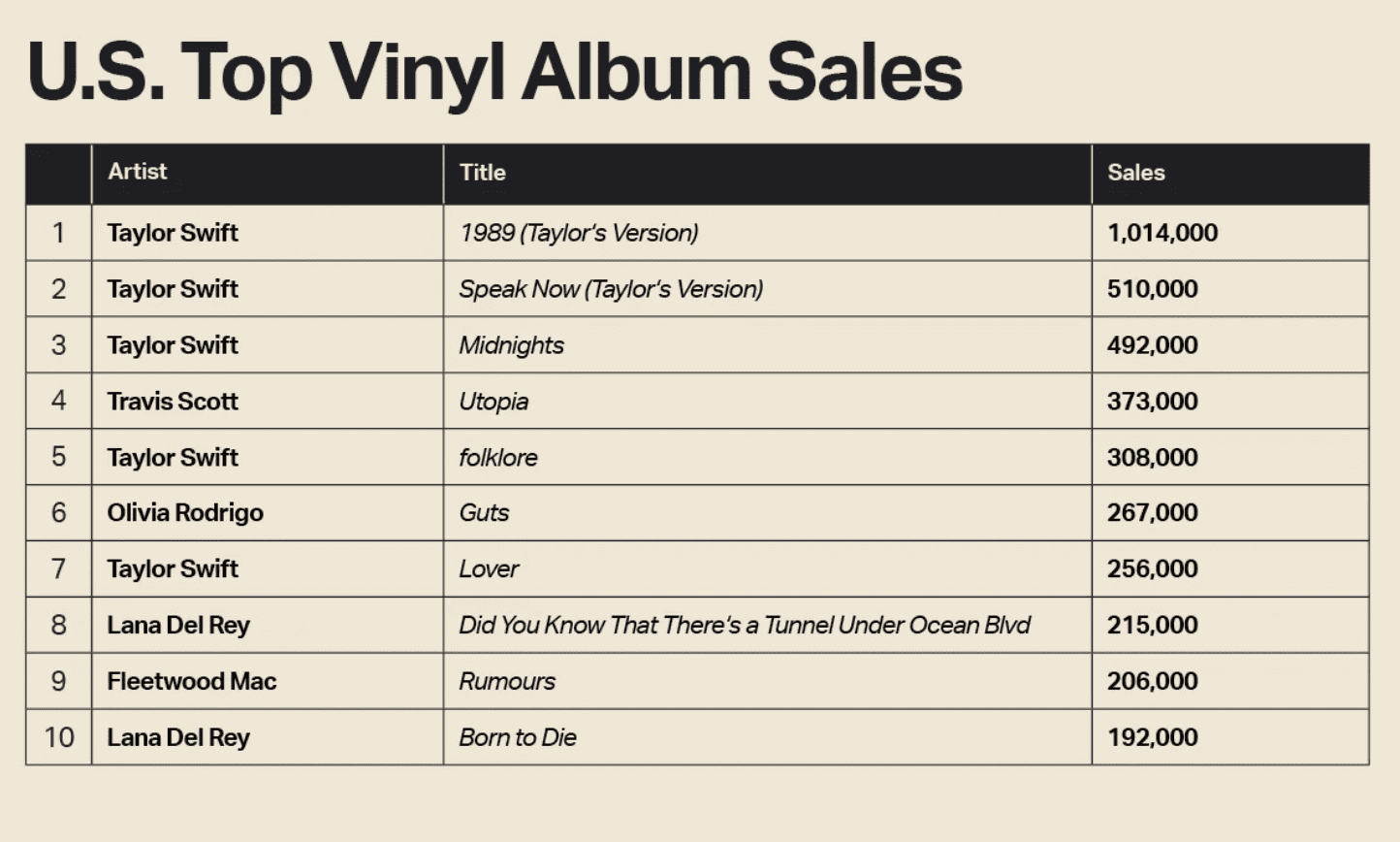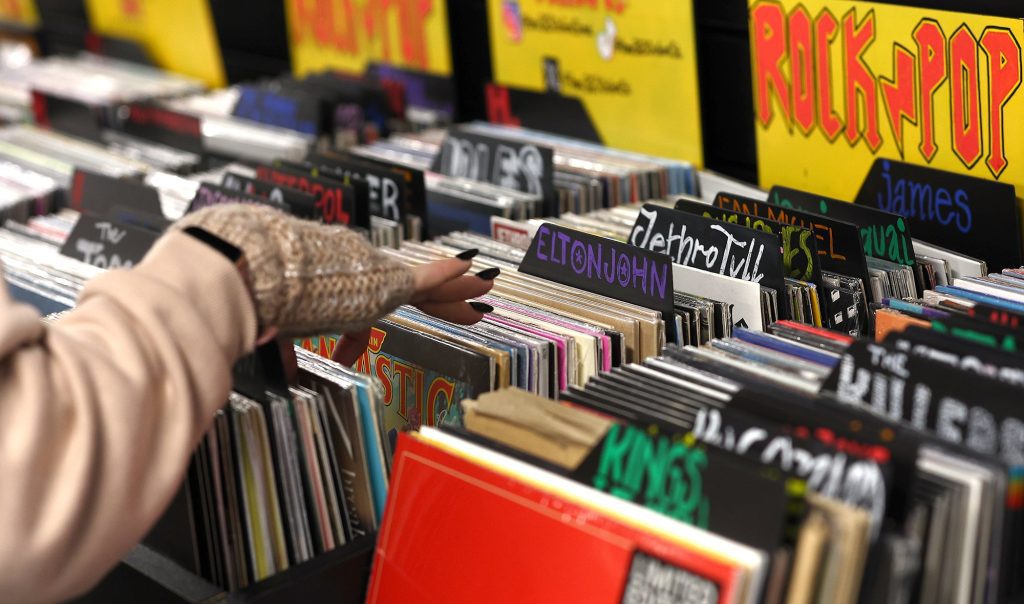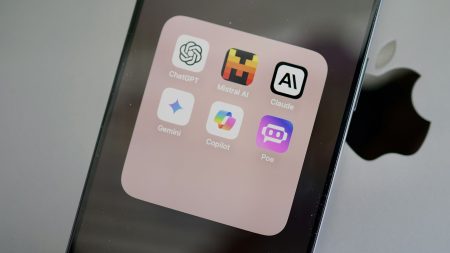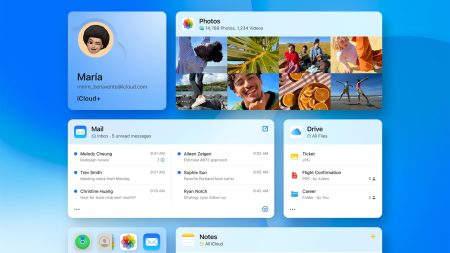Somehow, someway, vinyl records keep defying the odds. Despite falling firmly behind compact disc sales for decades, the classic physical music medium returned to the top spot in 2022 for the first time since 1987. Now, new numbers released by the Recording Industry Association of America (RIAA) indicate that wasn’t just a random fluke—yet again, vinyl outsold CDs for a second year running in 2023. This time, however, LPs managed to widen the lead even more.
As noted by The Verge on Tuesday, US music fans purchased around 43 million vinyl records in 2023, about 6 million more than total CD sales last year. What’s more, LP and EP purchases actually increased year-to-year by nearly 3 million sales—for the record (sorry), “long playing” vinyl are generally 12-inch records containing full albums usually played at 33 1⁄3 RPM, while “extended play” records are usually shorter, 7-inch releases spinning at 45 RPM. At the same time, people simultaneously bought less CDs this year than in 2022. All told, records generated nearly double the profit of their successor format—about $1.4 billion versus $437 million.
For reference, here’s a list of last year’s bestselling vinyl releases:

Unsurprisingly, it was a lot of Taylor Swift. But what’s more impressive to consider is that new vinyl is usually much more expensive to manufacture than compact discs.
[Related: Vinyl is back. But until now, record-making has been stuck in the ’80s.]
After spending decades as listeners’ go-to physical music medium, vinyl records finally passed the torch over to CDs back in 1987. For the next 35 years, that dynamic remained the same, with CDs’ comparative portability, durability, and overall audio quality making them the preferred method of enjoying music.
Sorry record purists, but it’s science. While transferring sound waves’ electrical signals into etched grooves on vinyl can offer “lossless” audio, that’s only under perfect conditions. And, as any vinyl owner knows, keeping a record in “perfect” condition is no easy task. This means that it doesn’t take much, or long, for an LP’s quality to degrade at least somewhat during playbacks.
[Related: This DVD-sized disk can store a massive 125,000 gigabytes of data.]
Contrast that to CDs, which digitally encode audio files onto optical discs that are translated back into sound via laser scanning. This can also sometimes result in diminished sound quality, but it’s overall a more reliable and standardized way to play music. Also (and perhaps most importantly) it’s generally a bit less of a hassle to keep CDs in good shape than vinyl upkeep, not to mention easier to travel with them.
But given the pros and cons of both options, it’s always really come down to how and where people want to enjoy their music—but for the second year in a row, it’s clear audiophiles are buying more vinyl instead of their once-unequivocal heirs.









